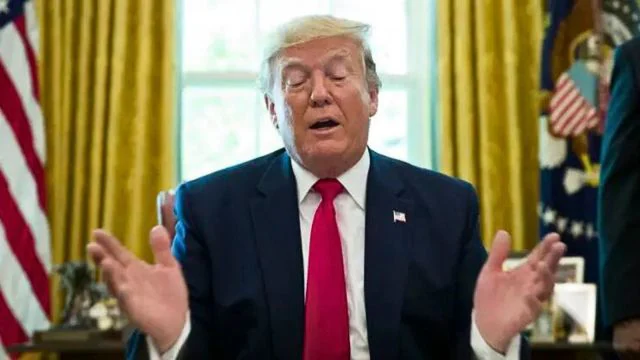Former US President Donald Trump’s renewed push to expand the tariff net has sent ripples across global markets, once again raising doubts about the sustainability and effectiveness of trade deals with Washington. For partners like India, which have long sought a stable and mutually beneficial trade framework with the US, the looming uncertainty underscores the complexity of navigating an America-first economic agenda.
Tariffs and the Trump Doctrine
Tariffs have been the cornerstone of Trump’s economic nationalism. His approach frames trade not as a cooperative enterprise but as a competitive arena where the US must leverage its market size to extract favorable concessions. By expanding the tariff net, Trump aims to protect domestic industries, reduce trade deficits, and pressure partners into making concessions.
However, the immediate effect has often been disruption. While tariffs may provide temporary relief to specific sectors within the US, they also trigger retaliatory measures, distort global supply chains, and push up costs for American consumers and manufacturers alike.
Why Trade Deals Appear Fragile
The very nature of Trump’s tariff-centric policy raises questions about the credibility of trade deals signed under such circumstances. For India and other nations, two fundamental concerns loom large:
-
Unpredictability: Even if a deal is struck, there is little assurance that it will withstand policy shifts or unilateral tariff expansions. This unpredictability makes long-term business planning difficult.
-
Transactional Focus: Trump’s approach often reduces trade deals to short-term transactions rather than durable frameworks built on mutual trust. This erodes the incentive for structural economic cooperation.
India’s Dilemma
For India, the stakes are particularly high. The US is one of its largest trading partners, and access to American markets is critical for sectors like textiles, pharmaceuticals, IT services, and engineering goods. India has been eager to negotiate deals that reduce tariff barriers and expand market opportunities.
Yet, the expansion of tariffs undercuts the optimism around such negotiations. Even if concessions are achieved, the constant threat of tariff escalation makes the environment unstable. Indian exporters, particularly small and medium enterprises, face the risk of sudden cost hikes that could erode competitiveness.
Global Ripple Effects
The US tariff strategy has broader global consequences as well. Nations like China, Mexico, and members of the European Union have already engaged in tit-for-tat responses, creating a cycle of economic confrontation. For emerging economies, this adds another layer of difficulty, as they are forced to adjust supply chains and hedge against sudden policy shocks.
Moreover, global institutions like the World Trade Organization (WTO) find themselves sidelined, as unilateral tariff moves weaken the multilateral system of dispute resolution.
The Effectiveness Question
Ultimately, the question remains: do tariffs and the deals that follow achieve their stated goals? While tariffs may win political support domestically, their economic results have been mixed. Trade deficits have persisted, inflationary pressures have grown, and trust in the US as a reliable trading partner has been shaken.
For countries like India, this raises a sobering realization: any deal with the US under Trump’s tariff regime might not be a shield against disruption, but rather a pause before the next round of uncertainty.
Conclusion
As Trump expands the tariff net, the effectiveness of striking trade deals with the US is increasingly questioned. For India and others, the calculus is no longer just about negotiating concessions but about managing unpredictability. Unless the US can assure partners of stable, long-term commitments, trade deals risk becoming fragile instruments—easily overshadowed by the next tariff announcement.



